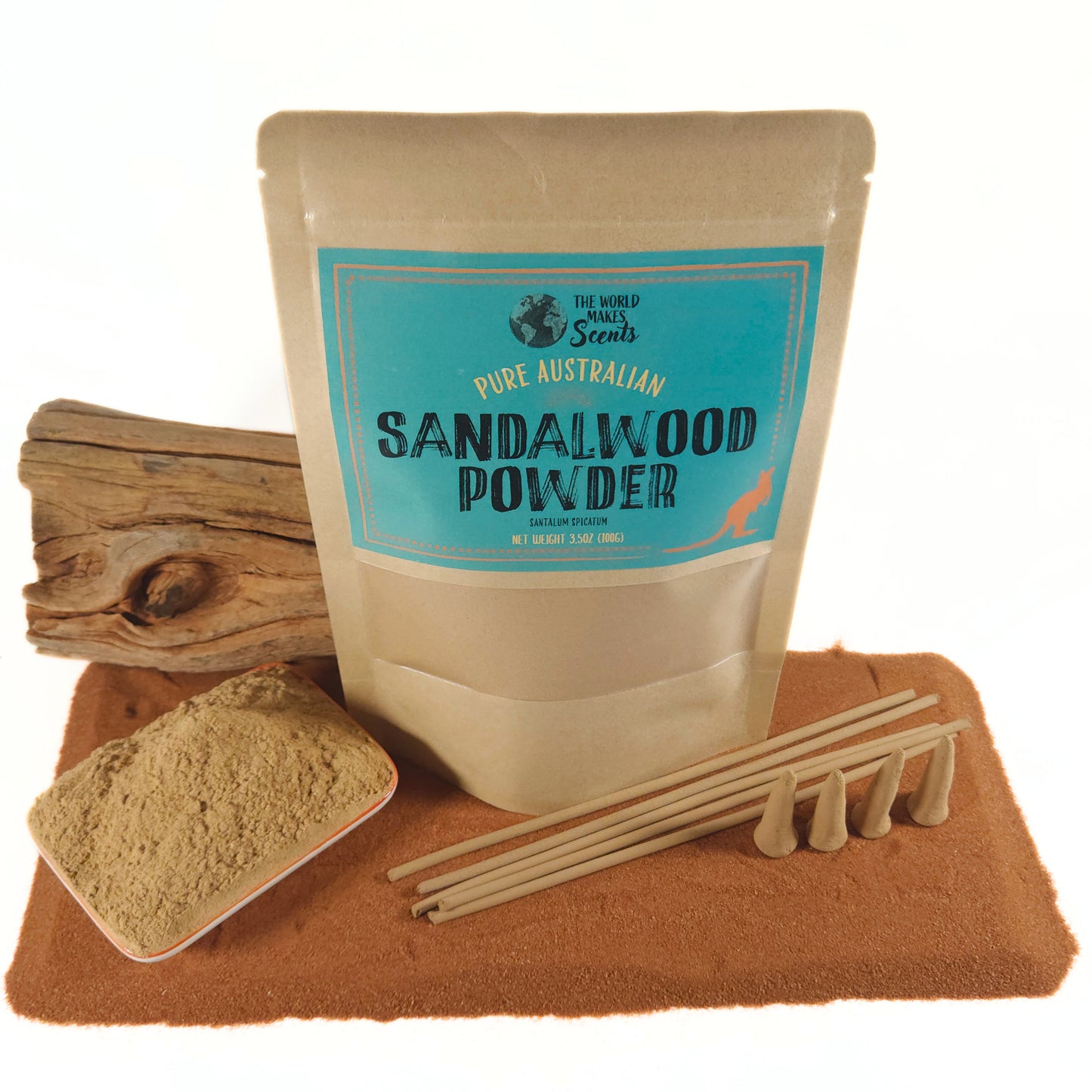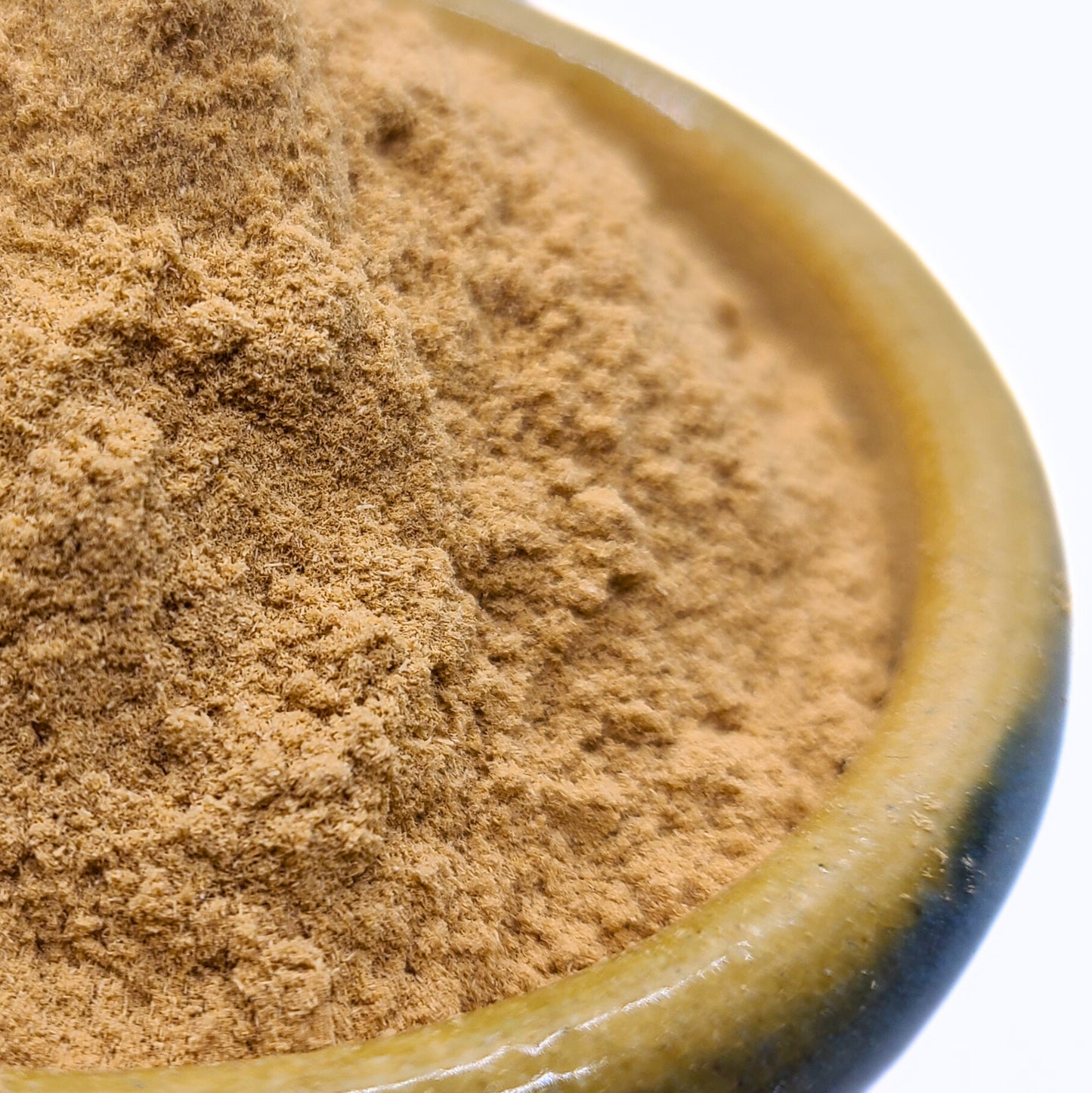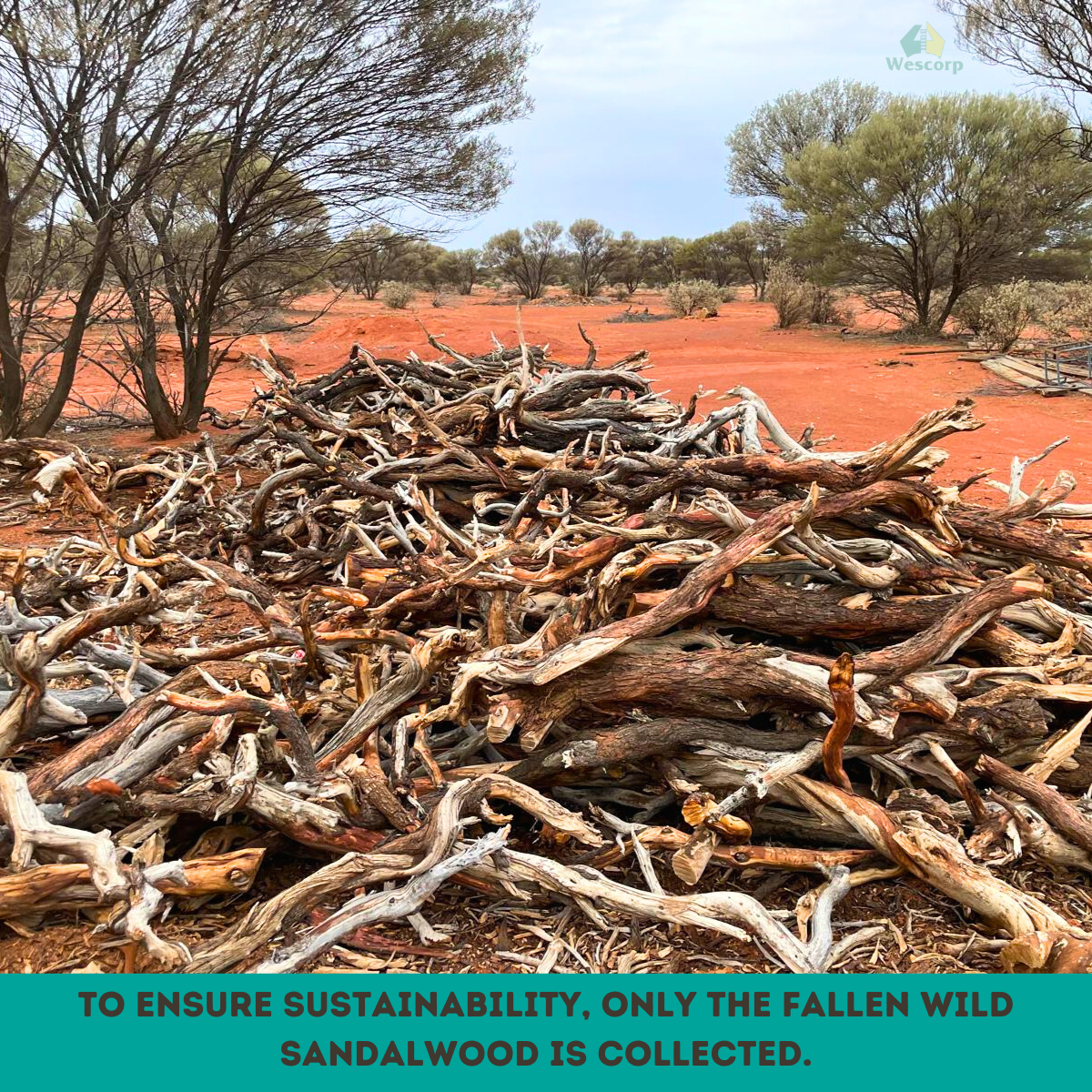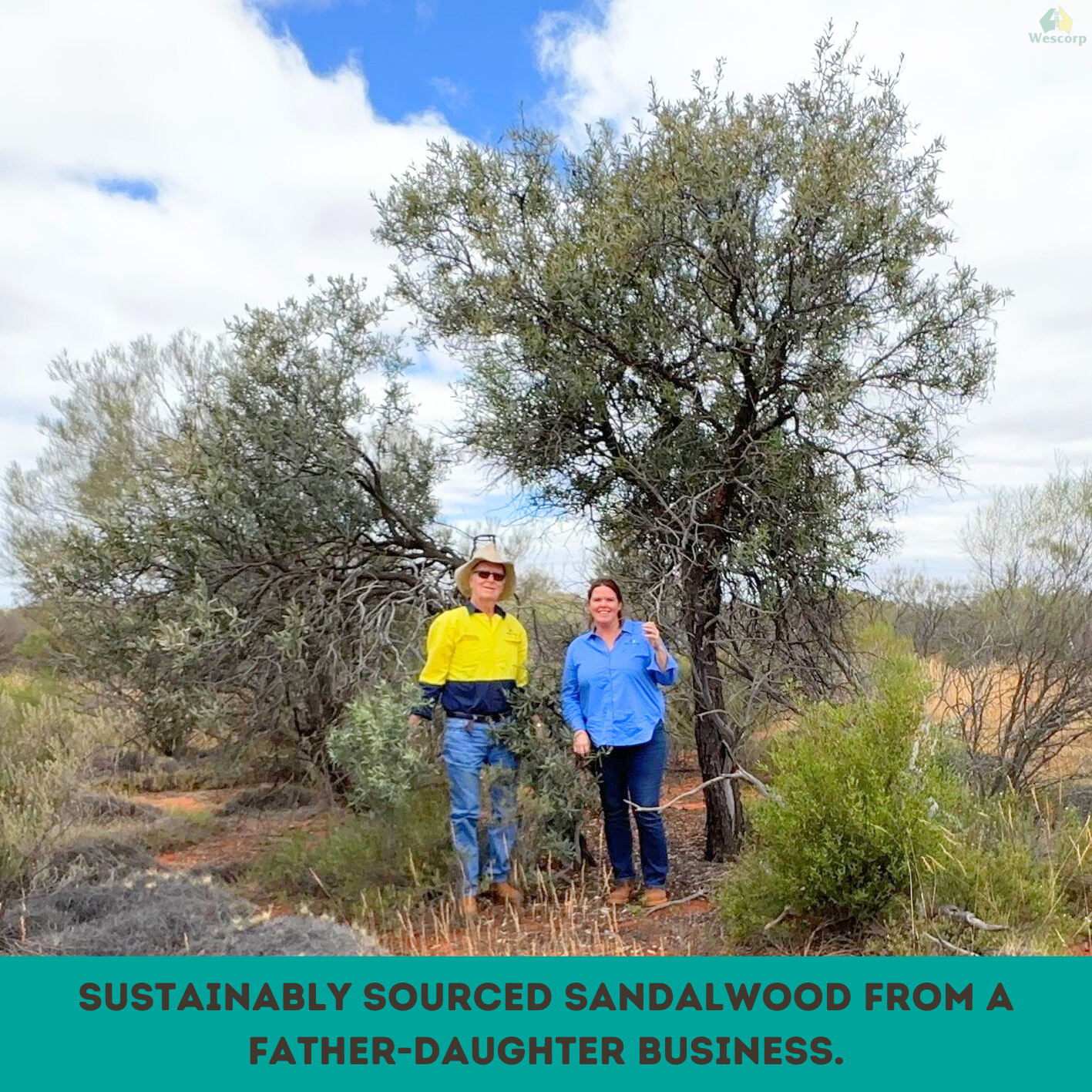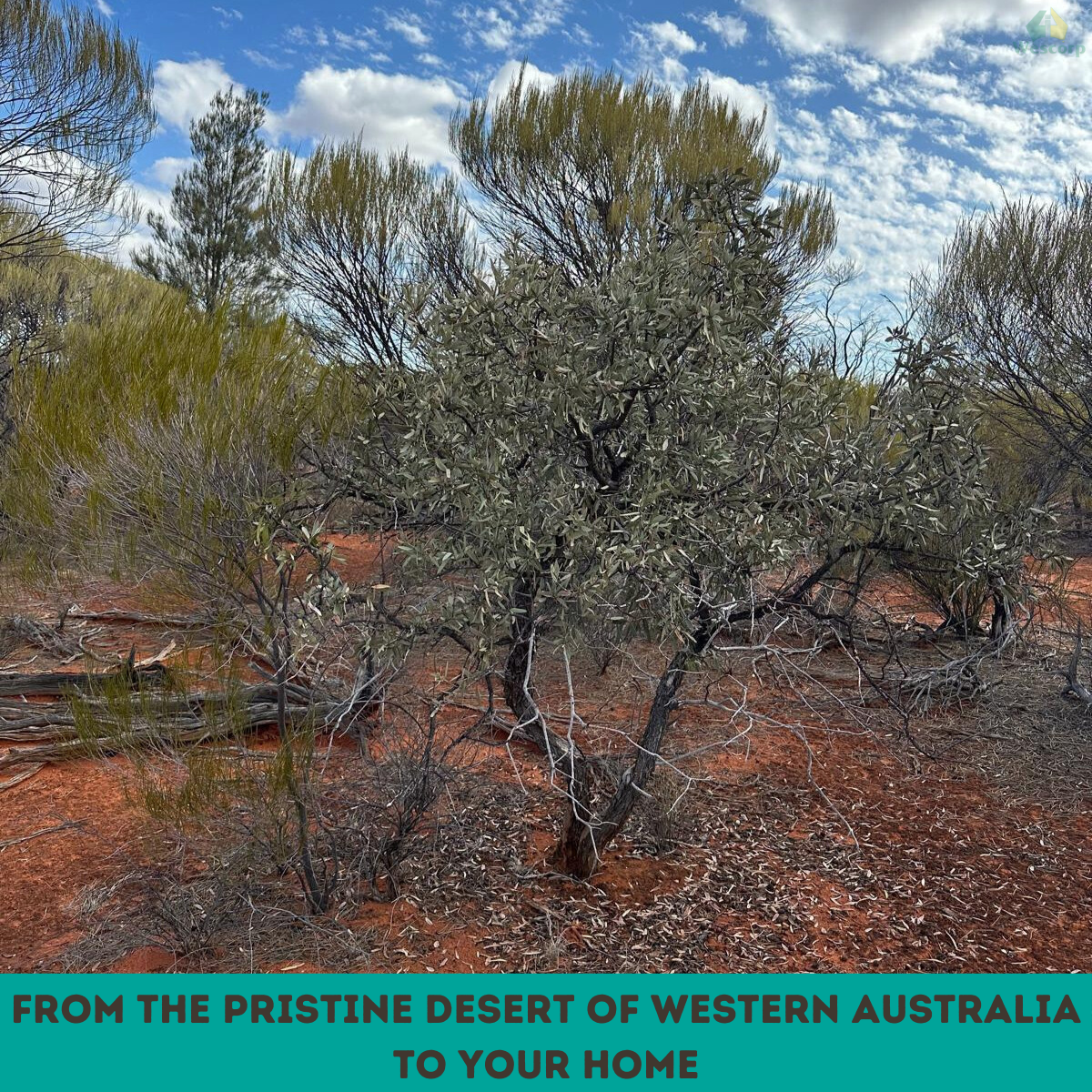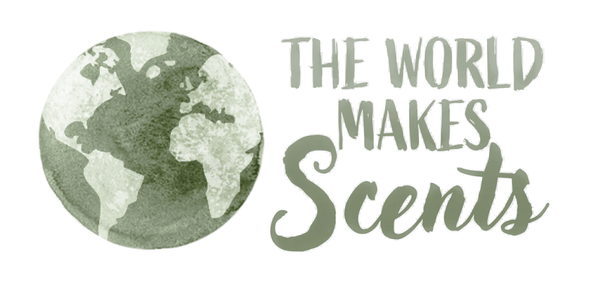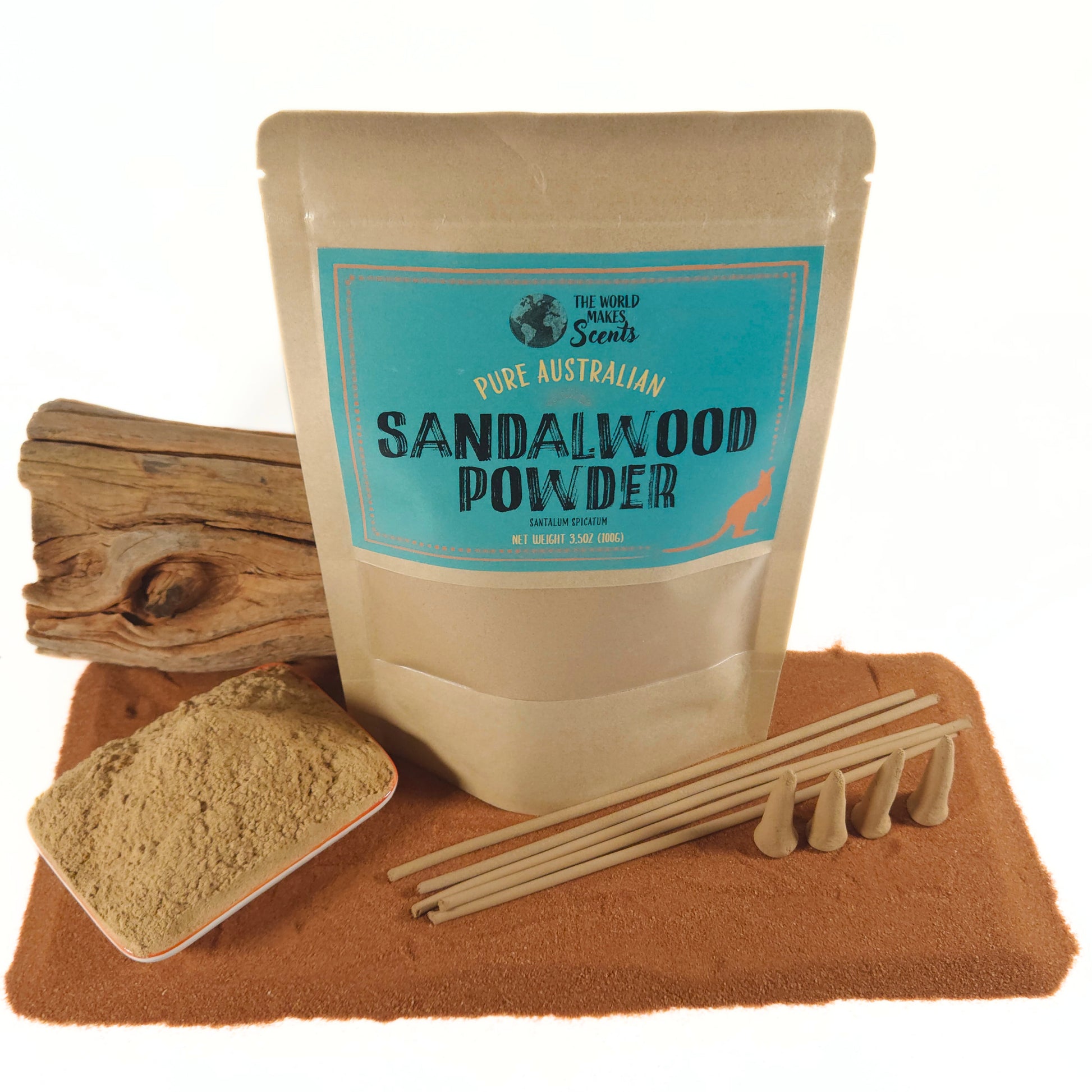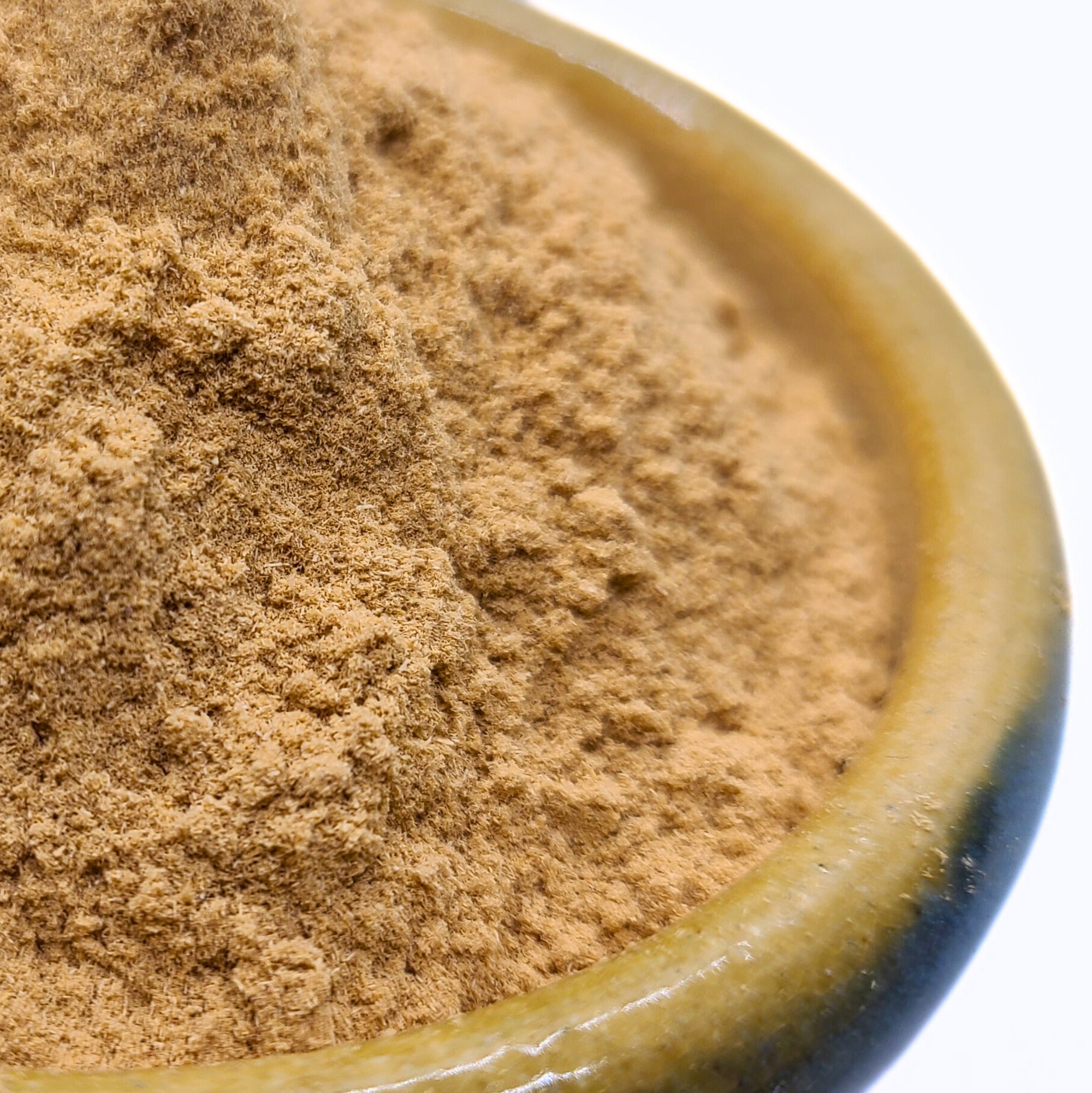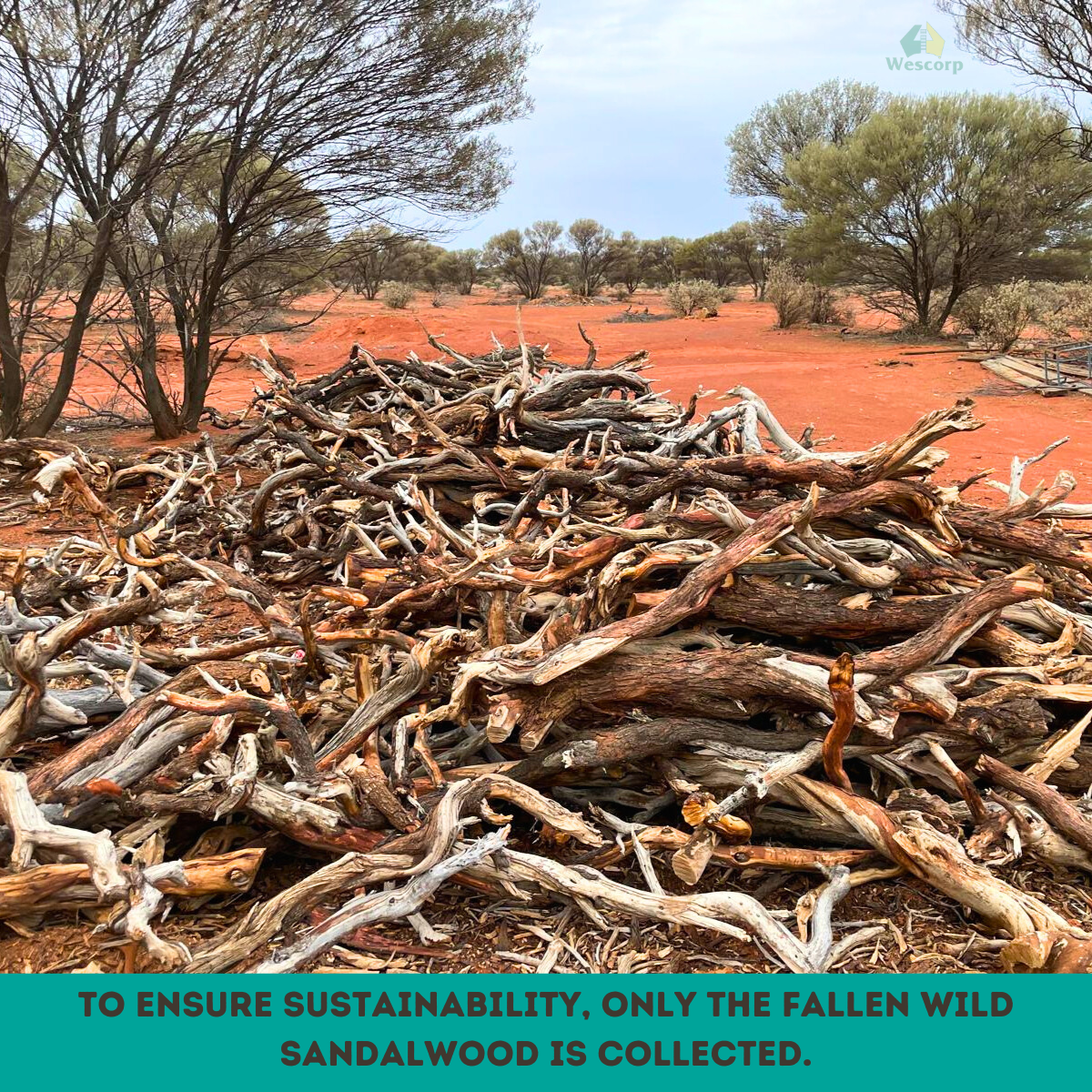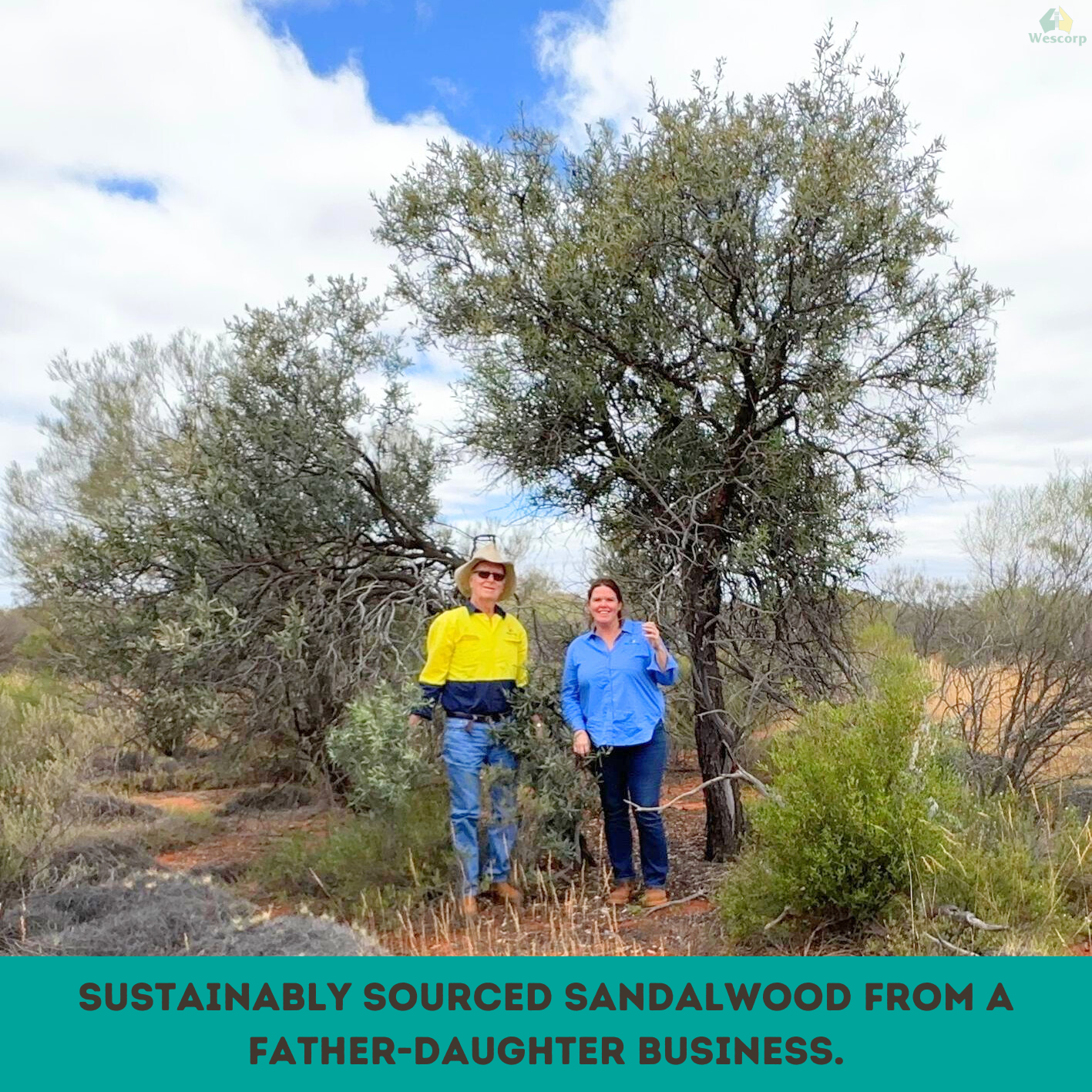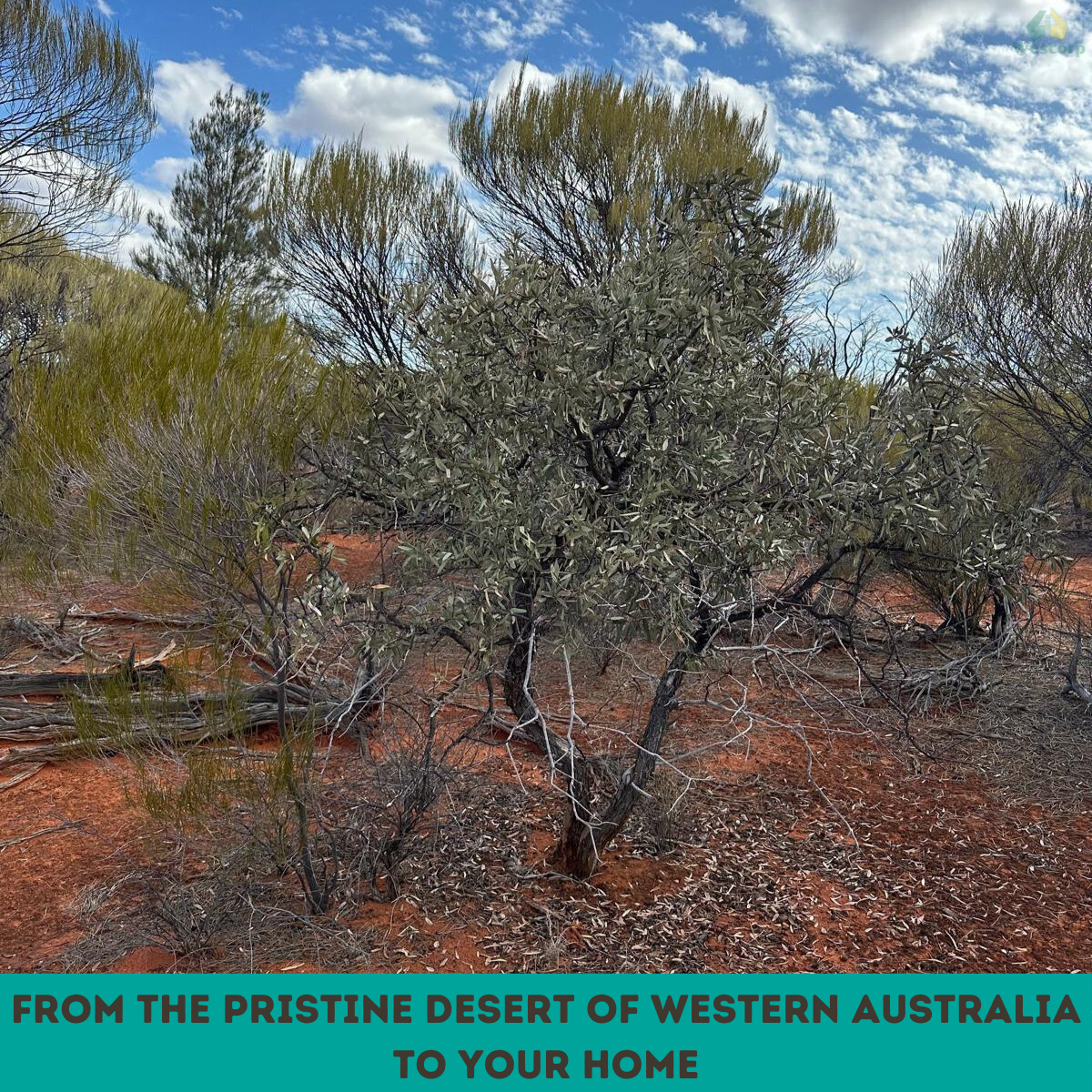The World Makes Scents
Pure Australian Sandalwood Powder
Pure Australian Sandalwood Powder
Couldn't load pickup availability
Pure 100% heartwood sandalwood powder in 50 or 100 gram resealable Ziplock kraft paper bag. The species is Santalum Spicatum which is native to southwest Australia in the state of Western Australia. It's great for incense, mud masks, facial masks, soap making, candle making, scented oil creation, and other aromatic applications.
It is important to understand the basics of sandalwood so you don't end up buying this sandalwood and being confused by the aromatics. There are primarily 4 species of sandalwood trees that are used for incense. I'm not going to cover all 4 but will cover the most commonly bought, and then the species I sell.
Santalum album - Also known as Indian Sandalwood. This is an endangered species and is one of the most commonly bought and sold sandalwood trees. This is not what I am selling. The trees are almost extinct in the wild due to overharvesting. I am told by mentors that finding good scam and fraud-free album sandalwood is difficult and expensive. This is why I avoid it.
Santalum spicatum - Also known as Australian Sandalwood. This is sustainably grown in collaboration with CITES and the Western Australian government. This is NOT wild harvested. It has been used for thousands of years by the aborigines. This is what I sell and it does not smell like Indian sandalwood. It's used widely in aromatic and health applications along with bush medicine.
How do you know you are buying high quality sandalwood powder?
You want sandalwood powder from the heartwood of the tree. A lot of inexpensive sandalwood comes from twigs, branches, and the outer rings of the tree which contain less santalol which is the oil of the tree. This sandalwood is made from heartwood.
It took me a very long time to find a high quality, high value, and sustainably grown sandalwood powder. It was also important that this supplier pays tribute to and respects the native owners of this land. This species is not endangered so it's not being poached into extinction. The supplier recognizes the Whadjuk people of Noongar boodja as the traditional owners of the land.
We pay our respect to the Noongar boodja Elders past, present and future; and we recognize and support their peoples continued connection to the land.
I use this powder in many of my products and now I'm going to share it with you!
Facebook: https://www.facebook.com/theworldmakesscents
Instagram: https://www.instagram.com/theworldmakesscents/
Share
